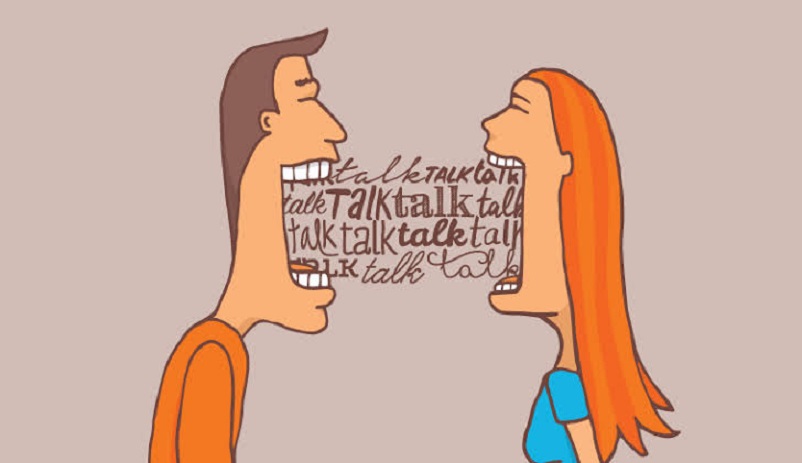Respectful Disagreement & Negotiation Skills

Respectful disagreement and negotiation are essential life skills.
The Dive
Disagreements are a normal part of life. People see the world differently, have unique experiences, and form their own opinions. That means even close friends and family members will sometimes disagree. What matters most is not whether disagreements happen, but how we handle them. Respectful disagreement is an important life skill that helps people express their ideas, listen to others, and solve problems together without hurting feelings or relationships.
The first step in handling disagreements is listening. Listening is more than just hearing words; it means showing interest in another person’s point of view. Facing the speaker, maintaining eye contact, and keeping still while they talk are all ways to show respect. When someone finishes speaking, repeating what you heard in your own words can help confirm that you understood correctly. For example, saying “So you think we should take turns leading the project?” shows that you care about understanding, not just waiting to reply.
Using “I” statements is another key part of respectful disagreement. These statements let you share how you feel without blaming others. Instead of saying “You never let me talk,” you might say “I feel left out when I don’t get a chance to share my ideas.” This approach focuses on your own experience rather than accusing someone else of being wrong. It helps others stay open to listening instead of becoming defensive or angry.
Body language and tone of voice also communicate powerful messages. Even polite words can sound rude if they are said with a glare, crossed arms, or a harsh tone. When disagreeing, it helps to keep your posture relaxed and your voice calm. A kind tone shows that you are focused on finding understanding rather than starting a fight. People are much more likely to listen and respond positively when they feel respected.
When emotions start to rise, it is wise to pause before continuing the conversation. Strong feelings like anger or frustration can make it difficult to think clearly. Taking a deep breath, counting slowly, or asking for a short break can help everyone cool down. Saying “Can we take a minute and come back to this?” gives both sides space to think and calm their emotions. Coming back to the conversation later can lead to a better outcome for everyone involved.
Respectful disagreement does not mean you have to give up your opinion. It means being willing to listen and make room for others’ perspectives. Saying “I see where you are coming from, but I feel differently” shows that you value another person’s thoughts while staying true to your own beliefs. This kind of respectful exchange helps people learn from each other, even when they do not agree.
Negotiation and compromise are important skills for resolving disagreements. Negotiation means working together to find a fair solution that meets everyone’s needs. Compromise means that both sides may give up something small to reach a bigger goal. For example, if two friends cannot agree on which game to play, they might take turns choosing or create a new game together. These actions show cooperation, maturity, and teamwork.
In the end, the goal of disagreement is not to “win” an argument but to build understanding. When people feel heard and respected, they are more willing to listen in return. Respectful disagreement builds trust, strengthens relationships, and helps create a community where everyone feels safe to share ideas. Learning how to disagree with kindness is one of the most valuable skills anyone can develop, and it helps turn conflict into an opportunity for growth and connection.
Why It Matters
Learning to disagree respectfully helps us become confident communicators, supportive friends, and fair problem-solvers. When we practice listening, speaking kindly, and working toward solutions, we learn how to stand up for our ideas without putting others down. These skills prepare us to handle tough conversations at school, at home, and in our communities with patience and maturity. In a world where many people struggle to talk across differences, knowing how to disagree with kindness allows us to build understanding, strengthen relationships, and create spaces where everyone feels valued and heard.
?
What does it mean to listen to someone without interrupting?
How do 'I' statements change the way we communicate during a disagreement?
Why is tone and body language just as important as the words we use?
What’s the difference between compromising and giving up?
Can you think of a time when a disagreement turned out okay because you stayed calm and listened?
How can learning respectful disagreement help build stronger friendships?
Why might it be harder to negotiate when we’re feeling angry or frustrated?
How can you tell when a compromise is fair to everyone involved?
Dig Deeper
This video highlights how you can disagree with people respectfully. It recognizes that we are not all going to agree with each other—but we can choose to treat others with respect when we disagree.
Governor Spencer J. Cox explores how even in polarized times, we can still have respectful disagreements and work toward shared understanding.
Related

The Power of I Statements
Learning to say how you feel without blaming others is a superpower. 'I' statements help you speak up, stay calm, and build better relationships—one sentence at a time.

Active Listening: The Power of Paying Attention
Active listening isn’t just about hearing—it’s about understanding. When we listen with our whole body and mind, we build stronger relationships, reduce conflict, and show people they matter.

Assertiveness vs. Aggression: Standing Up Without Stepping On
Assertiveness is the superpower of speaking up with strength and kindness. It’s not about being a pushover or a bulldozer—it’s about using your voice to protect your needs and your relationships.
Further Reading
Stay curious!
